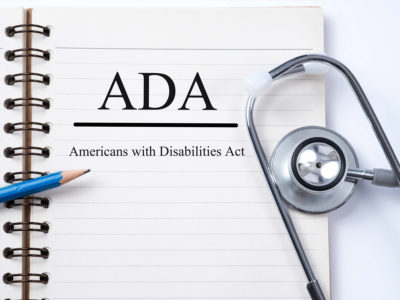In online forums and chat rooms, nurses are asking if they have to disclose mental health issues on job applications. The wording varies by state and organization, but the request is the same -“Have you ever been diagnosed with, do you have or have you had a physical, mental, emotional, or psychiatric condition that might affect your ability to safely practice as a nurse?”
Bottom line? No, you do not have to disclose it.
Defining Mental Illness
To discuss this issue, we first have to define mental illness. Diagnoses can include anxiety disorder, depression, attention deficit/hyperactivity disorder (ADHD), bipolar disorder and schizophrenia. The Americans with Disabilities Act (ADA) defines disability as a physical or mental impairment that substantially limits one or more major life activities. When job applicants or employees have a mental health condition that meets this criteria, they have workplace rights under the ADA. That means they have legal protections against discrimination in employment.
According to the ADA:
- The term mental illness is typically used in a medical context to refer to a wide range of conditions related to emotional and mental health
- The term psychiatric disability is typically used in a legal or policy context to refer to impairments covered under the ADA
ADA Two Main Rights:
It’s important to understand that applicants and employees with psychiatric disabilities have two main rights under the ADA.
- A right to privacy. Except when asking for an accommodation, they can choose whether to tell the employer about their disability
- A right to a job accommodation unless this causes undue hardship for the employer
“Employers can’t require applicants or employees to disclose a disability. So, in most cases, disclosing a psychiatric disability is a choice, not a requirement. Individuals who choose not to tell about their mental health condition are not ‘lying’ or ‘hiding.’ They are using a legally protected choice.”
If your employment application asks if you have a history of mental illness, you do not have to answer the question. However, if you need some type of accommodation in order to do your job and ask your employer for it, then, “the employer can ask for some medical documentation about the disability. This medical information can’t be shared with others in the workplace.”
If you think you may have a disability, the ADA recommends that you ask yourself the following questions:
- Are you able to do the main (essential) tasks of your job effectively with your disability?
- Are you able to keep up with your treatment and medication plans when working?
- Do you have what you need to perform at your best in this job as a person with a psychiatric disability?
“If you said “yes” to these questions, you may want to consider not telling anyone in your workplace about your disability. But if you said “no” to any of these questions, you might want to think about asking for an accommodation. Ideally, ask for an accommodation before your mental health conditions impacts your job performance.”
It can be nerve wracking to report a disability to an employer if you so choose, but remember that you are protected by law. In addition, many organizations now have active accessibility programs designed to make the workplace comfortable and productive for people with a wide range of disabilities, ranging from depression and mental illness to vision loss and autism. When you look for prospective employers, ask if they have an accessibility program.
If you suffer from any type of mental illness, you are not alone. The ADA tells employers, “about one-in-five of your current employees is working with a psychiatric disability.” In fact, “About 18% of workers in the U.S. report having a mental health condition in any given month. This means that psychiatric disability is one of the most common types of disability covered under the ADA.”
Here is the most important thing to remember. There are lots of discussions on nurse forums on whether to disclose PTSD, treatment for depression, or other types of mental illness. Read them if you like, but do not rely on them for the facts. Remember, the bottom line on this issue is the Americans with Disabilities Act. It is the law of the land and it is aggressively enforced and protected. If you suffer with mental illness, disclosing it to any employer is your personal choice.





